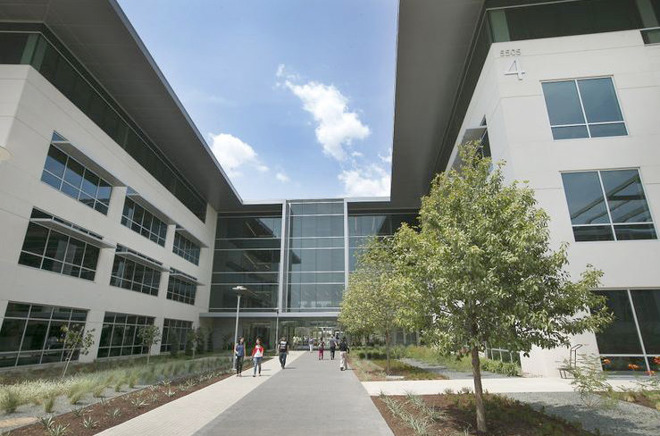Apple To Build New $1bn Campus In Austin

The expansion is part of a £277bn plan to create more US jobs, amidst pressure from President Trump
Apple has said it is planning to build a new billion-dollar campus in Austin, Texas, as part of a $350 billion (£277bn) scheme of US investment announced in January.
Austin is already a major tech centre, with Dell, Amazon, Samsung, Facebook, Google and IBM being significant local employers, and Apple has an existing base of its own there.
Intel has chip design facilities in Austin and created its Atom processors there, and the city also hosts major data centres and tech/cultural events such as South By Southwest.
Apple currently employs 6,200 staff at its Austin base, which is its largest outside of its Cupertino, California headquarters.

New base
The expansion plan involves building a new 133-acre campus near its existing facility, where another 5,000 staff are to initially be employed, with the capacity to scale up to 15,000.
Apple said the new roles would include engineering, research and development and sales.
The staff boost is set to make Apple the largest private employer in Austin.
The company said it is also to build new sites in Seattle, San Diego and Culver City over the next three years, as part of a commitment to create 20,000 new jobs in the US by 2023.
The plans call for it to expand into new cities including Pittsburgh, Pennsylvania and Boulder, Colorado and to invest $10bn in US data centres, Apple said.
Apple currently employs about 90,000 people in the US, including retail staff.
The company’s products are mostly manufactured in China, and it has faced pressure under the current US administration to increase employment in its home country.
Apple’s spending plans come amidst concerns that sales of its iPhones have peaked.
“Apple is proud to bring new investment, jobs and opportunity to cities across the United States and to significantly deepen our quarter-century partnership with the city and people of Austin,” said Apple chief executive Tim Cook.